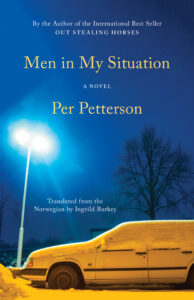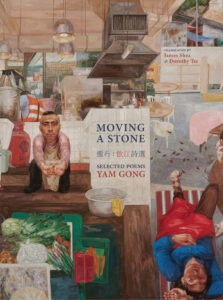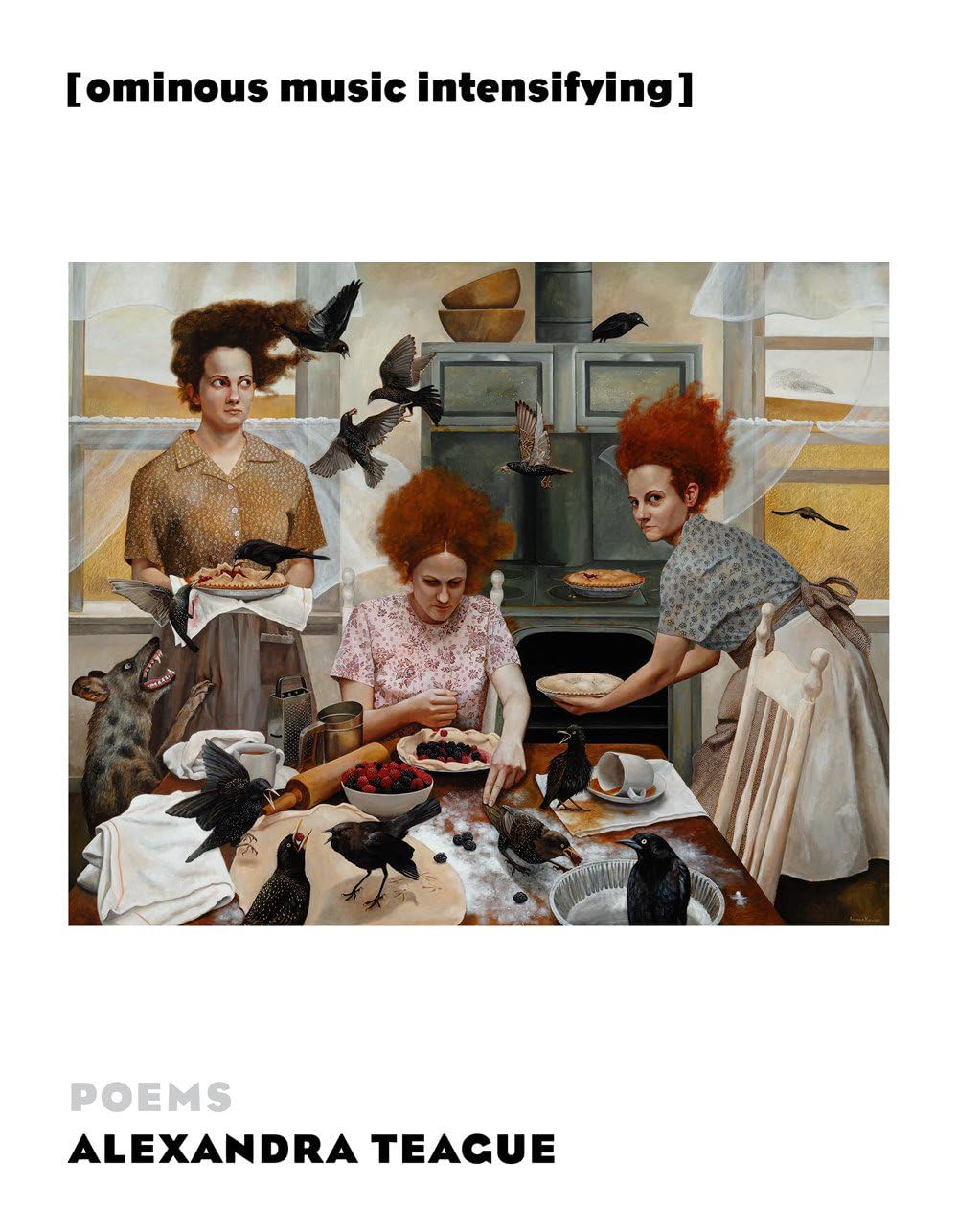Curated by SOFIA BELIMOVA
For our September round of Friday Reads, we spoke to two TC contributors, who recommended vibrant prose that leaps off the page and compelling poetry that transcends linguistic barriers while echoing with the sound of home.
Per Petterson’s Men in My Situation (trans. Ingvild Burkey), recommended by Cory Stockwell (contributor)
I can’t really write a summary of Per Petterson’s novel Men in My Situation, the best book I’ve read this summer—you can find plenty of these online, after all, plus the novel doesn’t really allow itself to be summarized. Or rather, that’s not what’s most interesting about it. What’s most interesting about it is the way its words seem to constantly fly off the page. James Wood once said something very similar about Petterson, writing in The New Yorker in 2012 that “his sentences yearn to fly away into poetry” (these words are included in a blurb on the back cover of Men in My Situation). I agree with every word except the last one: it seems to me that Petterson’s phrases fly not into poetry but into a kind of ether. That woman holding the protagonist’s hand in his dream as he sleeps in his car—who is she? In the work of a lesser writer, she might be obtrusive—where has she come from, you might ask; she wasn’t there before. Instead, she’s already on her way: before you think to ask about her, the narration is on to something else. She doesn’t disappear. Nor does she remain: she begins to float, as it were, not so much fading into the background as rising up above the narrative. It’s a little like a helium balloon that, when you’re holding it, seems like one of many elements that make up your reality, but causes panic the moment you let go of it: you grasp at it as it floats just above your head, but you know you’ll never take hold of it again, it will never return to you—it will simply continue its inexorable rise, drawing your eyes and your expression of wonder toward it as it does so. Petterson’s writing (brilliantly rendered by translator Ingvild Burkey) slips away from you, and you watch in quiet amazement as it rises into a beyond that’s lying right there, before you, on the page.
Yam Gong’s Moving a Stone (trans. James Shea and Dorothy Tse), recommended by May Huang (contributor)
Moving a Stone, selected poems written by Hong Kong poet Yam Gong and translated into English by James Shea and Dorothy Tse (both formidable poets in their own right), is a window into Hong Kong’s literary multiverse.
And what a multiverse it is. In these poems, Su Shi and Li Bai stand shoulder to shoulder with Goethe and Brecht, Hong Kong slang turns into the musical refrain of Méditation from Thaïs, and Condoleezza Rice, Mother Mary, and a God who speaks Cantonese form an unexpected trio in a poem dedicated to the author’s mother. It feels particularly apt that Yam Gong chose his own pen name by taking characters from a Chinese poem; the scope of his literary imagination, at once local and cosmopolitan, feels quintessentially Hong Kong. To experience his storytelling is to step into re-imagined myths and fables, with something in there for any reader.
As a translator, I admire how James and Dorothy have navigated the linguistic terrain of Yam Gong’s poems, which bring classic Chinese, Cantonese, and English together. In “Back Pain,” the Cantonese expression jiufai is translated to evoke its original double meanings of having an x-ray and being told off by a superior: “panic is when a doctor wants to see through you.” The first two stanzas of “Rubbing Black Bean Sauce on a Pomfret” end in an unexpected English rhyme, amplifying the almost limerick-like quality of the original: “A fish said, if you’re going to steam me / and fry me / and flip me // why rub black bean sauce / on me so gently?”
To me, a Hongkonger, these poems feel like home and more. Yam Gong’s literary imaginings are nostalgic yet timeless, vignettes of a city that contains multitudes.






